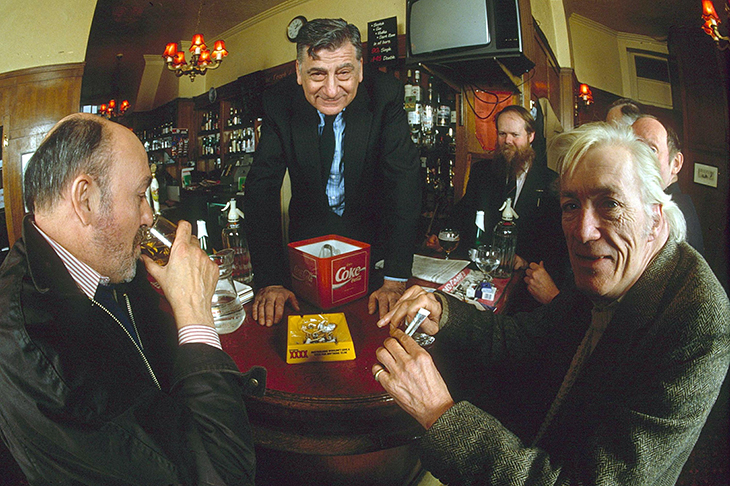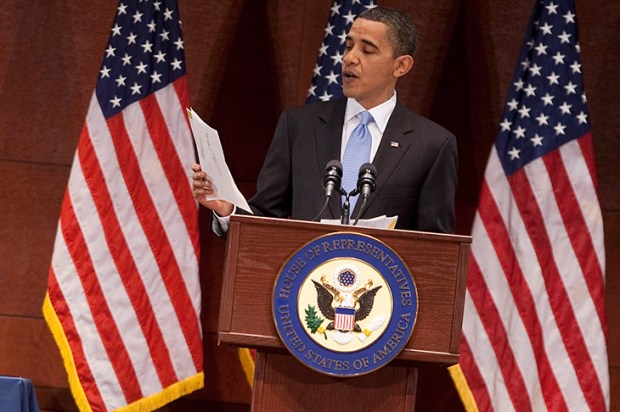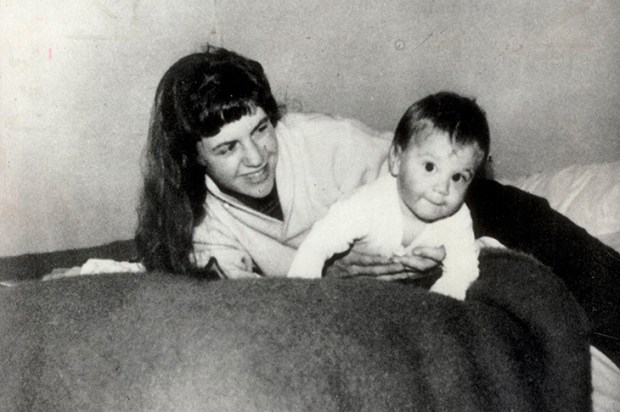On the one hand, I am supremely qualified to review this book. In 1984, bored beyond endurance after graduating with one of those degrees that leaves you both over- and under-qualified for employment, I decided to take my dole money down to the Coach and Horses pub in Soho, where this magazine’s Jeffrey Bernard held court, and pay my respects to him, for I liked his prose style and his stories. I stayed there for three years or more, a postgraduate course in itself, only packing my bags at the end of 1987 when I met the woman who was to become my wife.
On the other hand, I am one of the worst people who could review this book, for I am fascinated by its subjects, and this is pretty much a time machine for me — a jolt to the memory dulled by a thousand large whiskies (cheaper than a pint at the Coach, and without making you pee so much). How can I tell whether the general reader will not be bored senseless by it?
A bore was, of course, the worst thing you could be in this company. That was true in Daniel Farson’s Soho in the Fifties, whose launch party in 1987 is described in this book, and which looms large and threatening over it, as Christopher Howse acknowledges. Its characters overlap: particularly in the cases of Francis Bacon, and the Bernard brothers, Oliver, Bruce and Jeffrey. Oliver was a gifted poet and translator; Bruce a gifted photographer and picture editor; and Jeff, the first author of this magazine’s ‘Low Life’ column — on which Keith Waterhouse based his play Jeffrey Bernard is Unwell — should be a race memory of every Spectator reader to this day.
The problem is that 30 years of hard drinking doesn’t tend to make you more interesting or handsome. Oliver wasn’t a heavy drinker, but liked the Soho milieu; Bruce knocked it back a bit, but was, to me at least, kind and generous; but Jeffrey could be spectacularly cantankerous, and that was before he developed tennis-ball-sized cysts on the back of his neck and had a leg amputated at the knee (diabetes). He once pinched my girlfriend, Debbie, the barmaid at the Coach, and one of the most beautiful women I have ever met; she came back when she found out the hard way, so to speak, that male diabetics who drink at least a bottle of vodka a day aren’t going to be the greatest of lovers.
It was worth it, though, because Jeffrey was always a bit sheepish around me afterwards, and I loved the look on Norman Balon’s face — Norman, landlord of the Coach and self-proclaimed ‘rudest landlord in London’ — whenever I came down from Debbie’s room at the Coach on Sunday mornings. ‘What the **** are you doing here?’ he asked the first time, so I knew he was pleased for me. He used exactly the same formulation when he saw me at my first Private Eye lunch — always held upstairs at the Coach on alternate Wednesdays.
So by the time I got there, this corner of Soho was not so much tipsy on its own legacy, it was steaming drunk and about to be asked to leave. And yet it was great: what bliss it was in that twilight to be alive, or at least to observe. I don’t feature in this book, even though I propped up the bar with the regulars on countless nights, and was witness to several of its stories. I was soaking things up, and didn’t have much to contribute beyond a friendly ear and a pretty face; and perhaps Christopher Howse, who turned up after I did in an enormous beard and a tweed suit that can’t have been much fun in summer, didn’t like the look of me. I wasn’t hugely impressed by the beard myself, but to each his own.
Anyway, let’s sample some of the wit. Here’s Sandy Fawkes, ex-wife of Wally Fawkes, aka the cartoonist Trog, weeping on Howse’s shoulder: ‘Tomorrow’s the anniversary of the death of my baby.’ Graham Mason, who could turn nasty after a few, says from the other side of Howse: ‘You’re an ugly, horribly drunk old woman.’ I can hear him saying it now, and at the time there was more behind the remark than at first appears, but it’s not exactly the Algonquin is it? The index has this story under the heading ‘Sandy Fawkes — weeps’, and I was surprised to find that it was the only such entry. As the decade went on, you could find Sandy weeping more often than not, or so it seemed.
The attraction, of course, was unconventionality. No one gave a damn what you did, although, as Howse notes, people were suspicious of success. If one was successful, it had to be qualified by self-destructiveness, of which Jeffrey Bernard’s column was a weekly chronicle. The alcoholism was almost a given, although it was not called that. When the pubs shut in the afternoon, everyone decamped either to the Colony or to one of two ghastly basement dives which had afternoon licences. There is very little about the Groucho Club here, which is like leaving D-Day out of a history of the second world war. In fact, there’s more about it in Farson’s book; but then I suppose Howse never went there, so to leave it mostly out of the story is honest, and I think honesty is the thread that holds his book together. It was like that.
I stopped going to the Coach not long after Sandy Fawkes turned to me and said, with leaking rheumy eyes: ‘You’ve got to stop coming here. You don’t want to end up like us.’ That was a moment of clarity for both of us. ‘For me,’ writes Howse, ‘Soho in the Eighties was a love affair, if a dangerous liaison. It was no great achievement to survive it, for it was Soho that fell away from me and disintegrated.’
Its last great survivor is, we learn, Norman Balon, who secretly has a kind and tender heart.
Got something to add? Join the discussion and comment below.
Get 10 issues for just $10
Subscribe to The Spectator Australia today for the next 10 magazine issues, plus full online access, for just $10.
You might disagree with half of it, but you’ll enjoy reading all of it. Try your first month for free, then just $2 a week for the remainder of your first year.














Comments
Don't miss out
Join the conversation with other Spectator Australia readers. Subscribe to leave a comment.
SUBSCRIBEAlready a subscriber? Log in